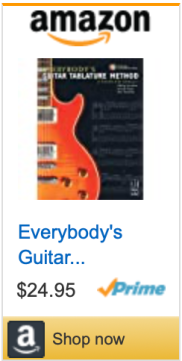Ever felt frustrated, wondering how to get better at guitar practice?
I’ve been reminded recently of the importance of being content in the present moment. This idea seems a little at odds with the whole concept of taking guitar lessons; the whole point is that you’re trying to get somewhere, right? Why fork over money if you’re just fine with where you are?
But, accepting your current level of development is not the same thing as lacking the desire to improve at guitar practice. We should always have a desire to improve, but that doesn’t mean we can’t find enjoyment as we’re in the process. In fact, I would argue that the only place we can find enjoyment is in process, because we are always growing. I have no desire to be morbid, but if you’re not developing it’s because you’ve either given up or you’re dead.
We all like to think that there will be this moment where we arrive as a musician (or in some other area of life), but that doesn’t really happen. Certainly there are milestones in life, but these are rare, and the satisfaction that we gain from such moments is not enough on its own to fuel continued practice on your instrument if you view such practice as drudgery. Somehow, you have to find a way to enjoy the process of practice itself.
I’ve done it both ways, and I can promise you’ll be a much happier person if you follow my advice here.
Perhaps you have a goal of playing “Thunderstruck” at full speed. Well, join the club! The bad news is that, unless you are gifted with dexterous hands and coordination far beyond what most people have naturally, it’s going to take a while. It’s going to be best for your peace of mind right now AND for fulfilling your long-term goal if you learn to enjoy the process of working on it — slowly, with a metronome, bit by bit. If you’ve patiently practiced it for some time, you may need to take a break from it for a while, work on something else, and come at it again with fresh eyes and ears.
This is what the process of learning to play the guitar well is like. We never really arrive. At the same time — if done right — we’re constantly arriving. Each measure memorized, each strum pattern that we’re just a little more comfortable with, each time we listen to an old song and realize that we understand what the guitarist is doing, we arrive.
That’s where the joy of learning music is. Don’t let the tunnel vision of playing “that song,” or playing as well as “that person,” prevent you from finding it.

Author’s note: If what I had to say here resonated with you, then you might want to check out one of my favorite guitar book recommendations (click on picture at left or click here).
The Practicing Mind: Developing Focus and Discipline in Your Life — Master Any Skill or Challenge by Learning to Love the Process is a great book to review for a deeper dive into this topic.
—–
Wes Freeman is private guitar lesson teacher in the Atlanta metro area of Georgia. He teaches lessons primarily in the cities of Lilburn, Snellville, Marietta, Decatur, and Brookhaven. Learn more about taking lessons with Wes on his Lessons page.
 I have been using FJH’s method books for years. The authors do a great job of gradually introducing material and giving plenty of musical examples. I have only recently begun using their guitar tablature method, and it is a better approach for most students.
I have been using FJH’s method books for years. The authors do a great job of gradually introducing material and giving plenty of musical examples. I have only recently begun using their guitar tablature method, and it is a better approach for most students.








 If you’ve ever taken a personality test, you may be aware that most traits are thought to inhabit a continuum. In my years of teaching guitar lessons, I’ve noticed that students also tend to favor one of two extremes when approaching practice: free-spirited and perfectionist.
If you’ve ever taken a personality test, you may be aware that most traits are thought to inhabit a continuum. In my years of teaching guitar lessons, I’ve noticed that students also tend to favor one of two extremes when approaching practice: free-spirited and perfectionist.